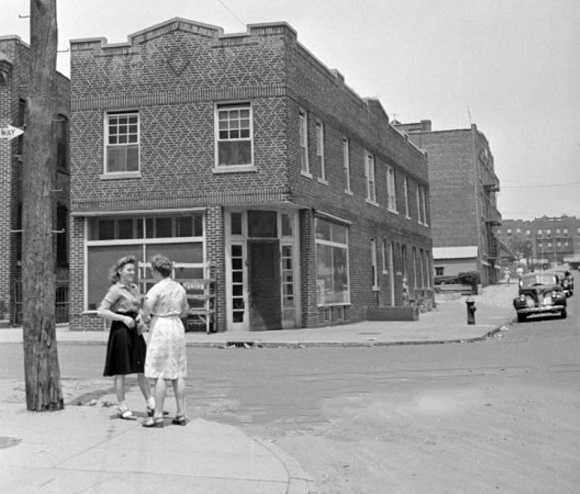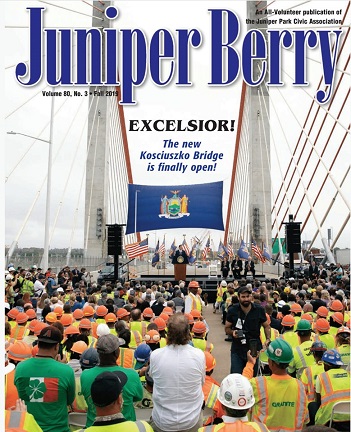I grew up in Middle Village, a small neighborhood in central Queens in New York City. The neighborhood was unique in that it consisted of families that were each surrounded by many relatives. For example, we shared a small two-family frame house with my mother’s first cousin. My mother’s sister lived two houses away and her brother around the corner. My father’s sister lived in the neighborhood as did other relatives. This concentration of relatives was repeated throughout the neighborhood with other families.
What I wish to set down for my children and their children, for they will never see a Middle Village as I did, is my recollection of a small neighborhood bakery called Eichel’s. It was located in a corner building around the block from where I lived. It consisted of a store and a large back work area with tables and several brick ovens. It was during the great depression of the 1930s and money was a scarce commodity. We never bought cake, but we did buy rye bread for six cents a loaf comparable to what today would cost several dollars. On Friday we bought challah, the traditional Sabbath loaf.
The store was operated by two sisters and their husbands. One sister was always cross and unsmiling, the other the complete opposite. If you were lucky enough to be waited on by the pleasant sister, you often found on your way home a free jelly cruller tucked into the bag of bread.
Middle Village was a mixed harmonious ethnic community of Jews, Italians, Irish, some Germans and a sprinkling of Scandinavians. The Jewish community was generally orthodox and observant of the Sabbath. Eichel’s was closed on Saturday and that meant that on Friday the oven fires were banked, not to be restarted until Saturday night. Catering as we now know it was beyond our means and unheard of, yet there were constant parties, Bar Mitzvahs, Briths and Pidyan Ha’bens, and these were self-made in either in one’s home or the basement of the synagogue. This required a great deal of work, but with the large family clans there was no shortage of unpaid labor. Eichel’s did no baking on Friday afternoon and the ovens, while banked, still had considerable heat. The community was permitted without charge to use the ovens. You could bake whatever you wished except bread or challah which you were expected to buy from Eichel’s.
On the Friday before a particular event, the women of the clan converged on the bakery and spent the entire afternoon baking for the affair. At 3:30 when the children came home from the neighborhood elementary school, they went to the bakery to help carry the cakes to the home where the affair was to be held. While I speak from a memory of over 70 years ago, the picture of what awaited you when you entered and the aroma of the cornucopia of freshly baked cakes is as vivid in my mind as though it was yesterday.
It was not at all unusual to have several different clans working at the same time for their affairs. You walked into the back of Eichel’s and were met by rows upon rows of large well used flat baking pans filled with powdered sugar covered strudel, honey, sponge and pound cakes, onion cookies, rugelach, both cheese and nuts and raisins, and all sorts of cookies, all still warm. You, your brother, sister and cousins lined up in the corner where your family had been working and each given a pan to carry, with the admonition to be careful and not to eat the warm cakes, the latter of course always ignored. You delivered the pan and ran back for another until everything had been brought home.
To this day, I do not enter a bakery without the urge to walk into the back room hoping to see those wonderful women turning out their handmade miracles. I do not, of course, and know that even if I did, I would not see them, for they and that era are gone forever.



